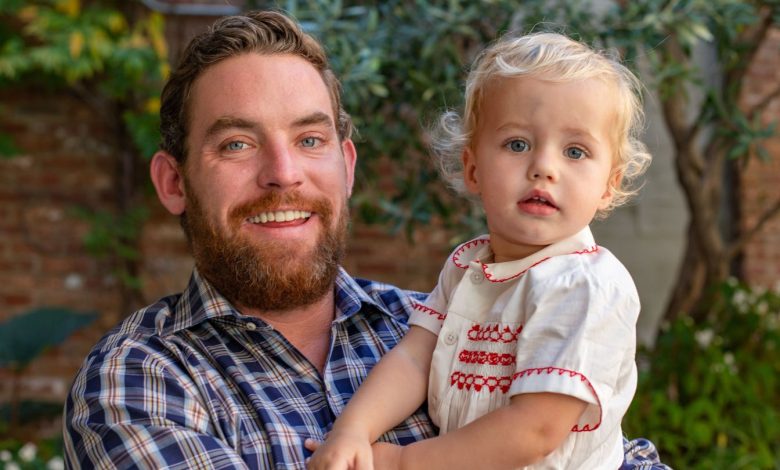Matthew Perry’s “Street Dealer” Managed High-End Rehab Where Client Died

Two entertainment industry figures connected to Matthew Perry’s death, one of whom pled guilty in the federal investigation, were involved in another fatal L.A. area overdose nearly three years earlier, family members of the deceased tell The Hollywood Reporter.
Erik Fleming, a former film director and TV producer with a colorful résumé, was recently described by the Department of Justice as a “street dealer” for his role in distributing vials of ketamine to Perry’s live-in personal assistant in the days before the actor’s October 2023 death.
Brooke Mueller, the ex-wife of former addict Charlie Sheen who’s made headlines for her own struggles over the years with sobriety, reportedly cooperated with investigators in the Perry case due her ties to the suspects, including a long-standing friendship with Fleming as well as time spent in rehab with Jasveen Sangha, the so-called “Ketamine Queen,” from whom Fleming had purchased the vials.
The earlier fatal overdose, on Jan. 4, 2021, was William Cooney, a 36-year-old found unresponsive and lying on the floor of a bathroom by fellow residents at the Red Door, a high-end recovery center in Bel-Air. THR previously investigated the circumstances surrounding this death as part of a larger examination of alleged substandard care at the facility, which at the time was apparently operating beyond the scope of its state licensure. (The owners’ previous facility was shuttered after multiple client deaths.)
Employees and clients at the Red Door had told THR that Cooney obtained the drugs that killed him — including fentanyl from another housemate — because the facility didn’t test or monitor him closely enough. When Cooney was admitted, Fleming identified himself as the Red Door’s program director to Amara Durham, a substance abuse consultant whom Cooney’s family had previously retained to work with him. Later, according to Durham, Fleming provided her with information about Cooney’s condition.
Durham notes that her client had checked in to the facility against her advice. He had nevertheless been persuaded by his then-girlfriend, Mueller, who’d herself recently relapsed. Cooney and Mueller had spent much of the previous year living together in Beverly Hills after completing respective stints at the luxury Utah facility Cirque Lodge, well-known for its celebrity clientele, where they’d met.
Fleming and Mueller didn’t respond to requests for comment. The Red Door’s attorney, Michael J. Plonsker, acknowledged that Fleming was a program director at the facility while Cooney resided there, as well as a sober living manager. However, Plonsker specified, Fleming “was not at the facility on the day of Mr. Cooney’s unfortunate death.” Plonsker also stated that Red Door “is unable to comment” on Cooney’s fatal overdose, citing federal health confidentiality rules, although the lawyer underscored that “Red Door and its founders bear no responsibility for his death” and that the facility operates at “the highest levels of client care.”
Cooney is survived by a young son, Miles, with his former wife Sarah Morse. “When I look back at when things truly began to unravel, it all started when he met Brooke Mueller, who also struggled with addiction,” she says. “She introduced him to shortcuts and connections that only fueled their disease further. Through her, he was drawn into a circle of people who masked their greed behind labels like ‘addiction specialists.’ These were sober companions who would drive them to buy drugs, doctors who would prescribe anything, and enablers who would stay silent as long they were paid. William was vulnerable, as addicts are, and they preyed on him.”
Morse adds, “After a relapse, Brooke and her associate Erik Fleming insisted he go to The Red Door rehab. This was a place notorious for its bad reputation, marred by the disgraceful conduct of its owners, Alex Shohet and Bernadine Fried. Up until then, Erik had been introduced vaguely as an assistant, best friend, family acquaintance — apparently godfather to one of her children. He wasn’t known for having any real credentials in health services. But Erik was, in fact, the program director at The Red Door and had a financial stake in pushing William there. Despite his family’s objections, William was taken to the rehab by Erik, who personally drove him there.”
Cooney’s father, Gary, a successful businessman in the insurance sector, was disturbed when he met Fleming after his son’s death. “I felt like he was feeling me out to befriend me in my grief,” he says, adding that he came to believe that Fleming had likely been a malign influence on both his son and Mueller’s sobriety during the couple’s earlier living arrangement in Beverly Hills: “His lifeline was a deathline.”
Durham expressed frustration that the concerning circumstances surrounding Cooney’s death, first made public three years ago, long before Perry’s own, hasn’t yet triggered appropriate law enforcement attentiveness. “My repeated efforts to engage the police to pursue the information I discovered led nowhere,” she says. “I had names and phone numbers and provided those to the responding officer. There was no inquiry. In fact, the matter was assigned to the ‘cold case’ department because they ‘had more time available.’ I asked for DEA support and was told that the case would go nowhere. I now wonder if Matthew Perry would be alive if William’s case had been given the attention that it deserved.”
The LAPD, which investigated Cooney’s death, didn’t respond to THR’s request for comment.
Morse notes that while her ex-husband was an addict, “he was also a human being” — a father, son, brother, friend, “and a man whose life had immense value.” She explains, “When this happened, we were told it was impossible to prosecute, that the paperwork rehabs make addicts sign is so airtight our only hope would be to push for new legislation — a process that could take years, cost a lot of money, and still offer no guarantees. It is devastating to know this should not have happened, yet it has not been investigated. I hope the Matthew Perry tragedy has spotlighted the deep flaws in our system and the way we approach addiction services, but this fight is bigger than one case. I want justice for William, for our son, for the entire Cooney family, and for every family that has been betrayed by these predatory practices. William’s life mattered.”
Related Posts
- Roundball Rocked: With NBA Return Looming, NBC Purges Scripted Roster
- SoundCloud Says It “Has Never Used Artist Content to Train AI Models” After Backlash on Terms of Service Change
- Fox News’ Camryn Kinsey Is “Doing Well” After Fainting on Live TV
- Kerry Washington and Jahleel Kamera in ‘Shadow Force.’
- This Alternative Artist Landed a Top-20 Chart Debut With an Album Made Almost Entirely on His Phone





